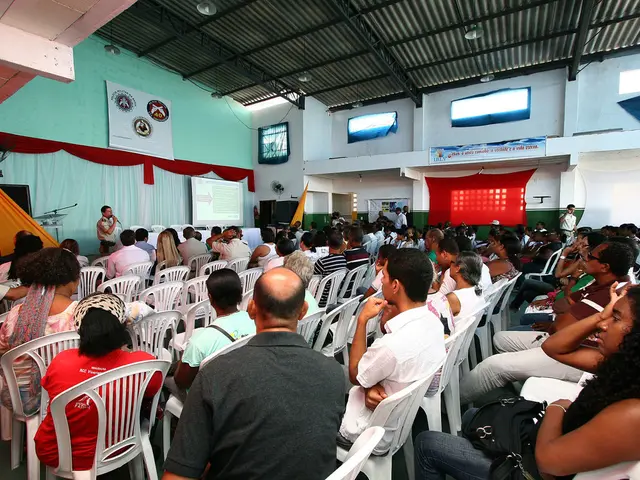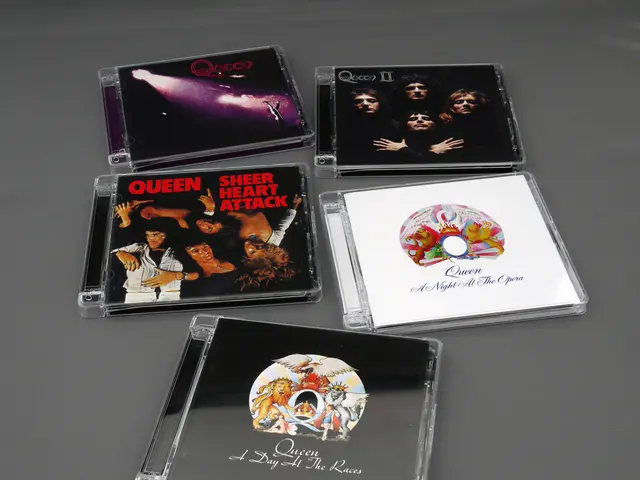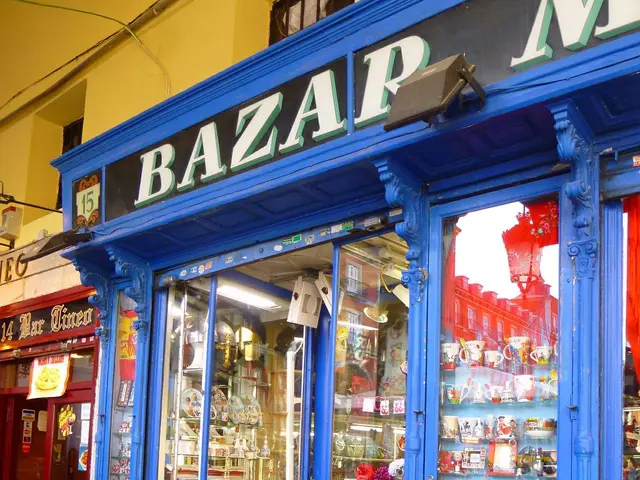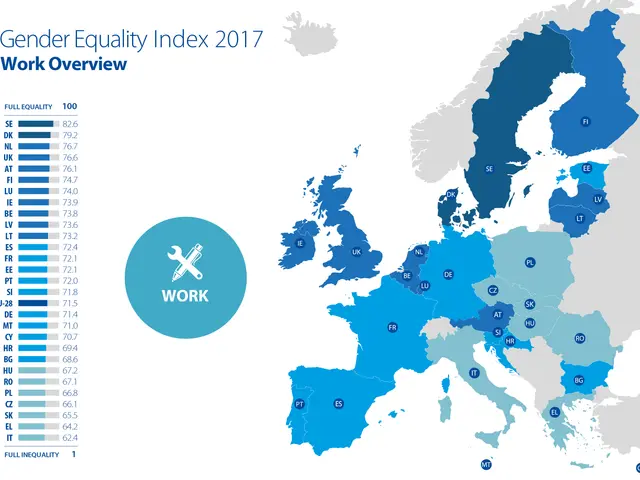Rheinmetall is lending a hand to DEG, as confirmed by the DEG chief.
German ice hockey champions DEG announce partnership with Rheinmetall, a prominent tech conglomerate, in a one-year deal. The collaboration, which includes advertising at home games and joint social projects, will help DEG achieve its future goals, according to Harald Wirtz, CEO of DEG Eishockey GmbH.
Rheinmetall, a renowned company and significant regional employer, views the partnership as an opportunity to promote sports and social cohesion, while also strengthening its presence in the high-tech sector.
Criticism swiftly followed the announcement, with Hannes Draeger, a member of the Left party in Düsseldorf, calling the deal "immoral" and "a sports sponsorship offensive that creates a societal climate for rearmament and arms exports." Draeger believes DEG should distance itself from the partnership due to ethical concerns about arms production.
On the other hand, some see the deal as part of a societal shift in defense readiness and preparedness. They argue that, as a city-based company, Rheinmetall's involvement in DEG is now considered normal.
Sportswashing, the practice of using sports to improve a company's image, is a concern when companies involved in controversial activities sponsor sports events or teams. Arms companies, in particular, have historically used sports as a means to enhance their public image and social legitimacy, a practice that can be seen as controversial due to ethical concerns. The public's opinion on these partnerships can be divided, with some viewing them as beneficial and others raising ethical concerns.
In light of DEG's partnership with Rheinmetall, the involvement of a finance and technology industry conglomerate in the sport's business sector, the practice of sportswashing, where companies use sports to improve their image, has once again come under scrutiny. Critics, such as Hannes Draeger of the Left party in Düsseldorf, argue that this partnership is immoral due to ethical concerns about arms production. On the other hand, some believe this collaboration represents a shift in societal views, with sports-analysis revealing that city-based companies like Rheinmetall are now considered common participants in the sports industry.








